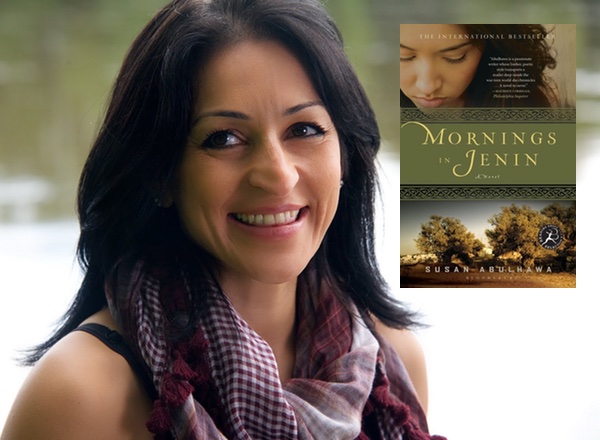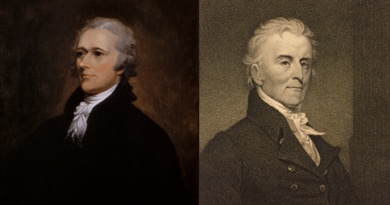Mornings in Jenin by Susan Abulhawa Review
Susan Abulhawa is an internationally renowned author who hails from Palestine. However, she is an American based author. She was born to Palestinian refugee parents during the 1967 War. Abulhawa’s childhood years were spent in Kuwait. She grew up in different neighborhoods, however, East Jerusalem, Jordan and, the United States of America can be said to be her homes as she grew up (Yaqoob, 2). It is in the United States and, specifically University of South Carolina that Abulhawa completed her graduate studies. She studied medical science before later on concentrating on fiction and journalism. To date, she has contributed immensely to the field of literature. This is evidenced by the contribution through her bestselling novel titled Mornings in Jenin in 2010.
The book Morning in Jenin has got a pretty interesting history. It was first published in the United States under the title The Scar of David in 2006. It was also published in France under the title Les Martin de Jenin. The book has also been translated into other various languages. In February 2010, Bloomsbury Publishing in the United States slightly edited the book before finally reissuing the novel back into the United States market as Mornings in Jenin (Abulhawa, 323). The book is set around the Abelhuja Family which consists of Basima, Yehya and, their children who live in a Palestinian village called Ein Hod. The book shows how both brothers fall in love with Dalia. It also shows how the village got invaded by Zionists and how one of Dalia and Hasan’s son named Ismael was stolen by a soldier if Israeli origin. The Israeli soldier gives Ismael to his wife who is a survivor of the Polish Holocaust. The Child is later on renamed David and, on his face is a distinctive scar. The scar is significant because it eventually helps David learn the truth about his origin.
The characters in the book present a real life scenario of present war victims. The author follows the life of a family in Palestine before the onset of the Second World War. The character Amal, who is a girl born in 1960 in a refugee camp, is affected by the Jewish attacks towards the Palestinians. The effects are profound on her, she suffers the absence of her father who flees and never returns. The departure of the father results to the mother going insane while the brother joins a resistance movement. This creates a void in her life and, she is placed in an orphanage so that she can receive the care she misses from her family. Her life is typical of every war victim. Instability that arises as a result of war destabilizes normal family life and, most of the time families are separated as depicted in the book and through the characters.
The author has been careful in choosing the title of the book. She has ensured that the title reflects what she thinks is relevant. If the earlier title of the book is considered The Scar of David, it signified what the author thought was significant in discerning the true identity about David. The present title of the book, Mornings in Jenin, shows exactly how the author remembers her childhood. She has used the title to infuse a personal touch into the book to captivate the emotions of the reader. The title makes the reader get into the mind of the author and see the story from the point of view of the author. The title helps the author achieve her purpose of stirring the mind and being able to reach the heart of the reader by being able to remind the reader of humanity’s common nature. This way she has been able to eradicate the barriers that have been depicted in the book.
The author has portrayed Islam in a very balanced way in the book. Normally people have stereotyped Islam. The religion has been associated with vices ranging from suicide bombing and, other acts of terrorism as well as extreme governance. However, Abulhawa has portrayed Islam as a religion as well as a culture of the Palestinian people. She has showed that Islam is kind, normal and, is taken as a way of life by its followers. She has written the book from the point of view of a Palestinian and this has helped in exemplifying the position of Islam in the Palestinian way of life. She shows the way of life of a group of people and how they struggled to live during war. She portrays the culture of the people just as it was.
The author has cleverly incorporated Arabic language in the book to bring out the authenticity. It has helps a reader believe the work of the author. Use of the Arabic language is also useful because it helps to blend the fictional aspect with the documentary aspect of the book. Arabic language has been used to make the Palestinian people feel incorporated in a book largely written by an American based author. It is without a doubt that the book is political in nature, therefore, it is expected that political emotions will be exhibited from Palestine and other bodies represented in the book. The author has successfully been able to bring out contemporary Arab writing poetic prose despite the book being written in an Anglo-American convention.
The book is centered on two major historical events. The author uses both events to bring about the emotions as well as build the plot of the book. The Polish Holocaust and the 1967 War are the two main historical events in the book. She has however humanized the whole events. She has tried as much as possible to avoid letting her personal emotions guide the book. Jewish characters in the book have not been demonized. The author has tried as much as possible to exemplify that historical injustices should not be used as a divisive factor. She shows that people should always try as much as possible to remain in touch with humanity and the aspects expected thereof. The happenings in the book reflect the current political stalemate between Palestine and Israel. The two regions have been in conflict for a long time over land. Both countries have attracted their own fair share of supporters and critics; however, the author tries to show that human beings can co-exist if they choose to see the human aspect in themselves. Families do not need to be disintegrated. The book shows that home is always the best for each group of people. Amal’s return to Jenin gave her the peace she required in her life. This means that the Palestinians and the Jews can only have lasting peace if they settle in their ancestral homes.
The book can be said to be an artist’s way of explaining human cohesion despite atrocities commissioned by humans to fellow humans. It shows that human beings are capable of overlooking vices and embracing virtues that are always present even in times of war. The author shows that in every demon there actually is an angel worth saving.
Work Cited
Abulhawa, Susan. Mornings in Jenin. United States: Bloomsbury Publishing, 2010. Print.
Yaqoob, Tahira. “Arab-American Novelist Fights for Justice in Palestine.” The National. 26th April 2012. Web. 7th July 2012.




